With new technologies revolutionizing data collection, wildlife researchers are becoming increasingly able to collect data at much higher volumes than ever before. Now we are facing the challenges of putting this information to use, bringing the science of big data into the conservation arena. With the help of machine learning tools, this area holds immense potential for conservation practices. The applications range from online trafficking alerts to species-specific early warning systems to efficient movement and biodiversity monitoring and beyond.
However, the process of building effective machine learning tools depends upon large amounts of standardized training data, and conservationists currently lack an established system for standardization. How to best develop such a system and incentivize data sharing are questions at the forefront of this work. There are currently multiple AI-based conservation initiatives, including Wildlife Insights and WildBook, that are pioneering applications on this front.
This group is the perfect place to ask all your AI-related questions, no matter your skill level or previous familiarity! You'll find resources, meet other members with similar questions and experts who can answer them, and engage in exciting collaborative opportunities together.
Just getting started with AI in conservation? Check out our introduction tutorial, How Do I Train My First Machine Learning Model? with Daniel Situnayake, and our Virtual Meetup on Big Data. If you're coming from the more technical side of AI/ML, Sara Beery runs an AI for Conservation slack channel that might be of interest. Message her for an invite.
Header Image: Dr Claire Burke / @CBurkeSci

Explore the Basics: AI
Understanding the possibilities for incorporating new technology into your work can feel overwhelming. With so many tools available, so many resources to keep up with, and so many innovative projects happening around the world and in our community, it's easy to lose sight of how and why these new technologies matter, and how they can be practically applied to your projects.
Machine learning has huge potential in conservation tech, and its applications are growing every day! But the tradeoff of that potential is a big learning curve - or so it seems to those starting out with this powerful tool!
To help you explore the potential of AI (and prepare for some of our upcoming AI-themed events!), we've compiled simple, key resources, conversations, and videos to highlight the possibilities:
Three Resources for Beginners:
- Everything I know about Machine Learning and Camera Traps, Dan Morris | Resource library, camera traps, machine learning
- Using Computer Vision to Protect Endangered Species, Kasim Rafiq | Machine learning, data analysis, big cats
- Resource: WildID | WildID
Three Forum Threads for Beginners:
- I made an open-source tool to help you sort camera trap images | Petar Gyurov, Camera Traps
- Batch / Automated Cloud Processing | Chris Nicolas, Acoustic Monitoring
- Looking for help with camera trapping for Jaguars: Software for species ID and database building | Carmina Gutierrez, AI for Conservation
Three Tutorials for Beginners:
- How do I get started using machine learning for my camera traps? | Sara Beery, Tech Tutors
- How do I train my first machine learning model? | Daniel Situnayake, Tech Tutors
- Big Data in Conservation | Dave Thau, Dan Morris, Sarah Davidson, Virtual Meetups
Want to know more about AI, or have your specific machine learning questions answered by experts in the WILDLABS community? Make sure you join the conversation in our AI for Conservation group!
No showcases have been added to this group yet.
- @Palinda
- | He
Corporate Responsibility Specialist & Sustainability/ Climate Change Professional Helping Conservation, Restoration, Community Livelihood Development ESG strategy and Sustainable Development.
- 0 Resources
- 0 Discussions
- 8 Groups
Universidade Federal do Rio Grande do Norte (UFRN)
I'm a Biologist and currently a master's student. My research focuses on understanding how birds respond to a restoration experiment in a Seasonally Dry Tropical Forest exclusive to Brazil through bioacoustics.
- 0 Resources
- 0 Discussions
- 4 Groups
- @APooran
- | She/her
- 0 Resources
- 0 Discussions
- 9 Groups
- @kristian.cuervo
- | He/Him
Applied Mathematics student in Denmark, interested in applications of mathematics to ecology and nature conservation. Currently interested in developing sensors for perimeter detection in wildlife conservations in Africa.
- 0 Resources
- 4 Discussions
- 9 Groups
- @MorganeLabadie
- | She/Her
I'm an ecology researcher with extensive experience of fieldwork and project management in international contexts. I specialise in wildlife, zoonotic diseases, data collection and analysis using mainly non-invasive techniques (acoustic, camera traps, etc.) and invasive techniques
- 0 Resources
- 0 Discussions
- 4 Groups
- @Jen_NZ
- | she/her
- 0 Resources
- 3 Discussions
- 7 Groups
- @cappel
- | she/her
Wildlife Science PhD candidate working on computer vision with camera traps and bioacoustics
- 0 Resources
- 5 Discussions
- 13 Groups
- @valengsb
- | she / her
GIS specialist for Audubon Americas | Biologist with an emphasis on Conservation and Sustainable Development | Innovative approaches in the study and monitoring of biodiversity for possible, biodiverse, and just futures.
- 0 Resources
- 0 Discussions
- 18 Groups
Ecologist at Noe NGO, Project manager in restauration, rewilding, and citizen sciences program for grassland ecosystems and wild pollinators

- 0 Resources
- 1 Discussions
- 7 Groups
- @capreolus
- | he/him
Capreolus e.U.
wildlife biologist with capreolus.at


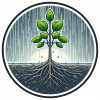


- 1 Resources
- 78 Discussions
- 16 Groups
- @JakobWiren
- | He,him
Swedish soon-to-be graduate engineer in AI/ML and robotics. Writing my master thesis in using decision trees for anti-poaching in Limpopo, South Africa. Am passionate about conservation, AI and travelling. Help me find a way to help you!
- 0 Resources
- 1 Discussions
- 13 Groups
- @fshort
- | He / Him
Boston University PhD Candidate, Biological Anthropology. Engaging in passive acoustic monitoring (PAM) of Bornean orangutans (Pongo pygmaeus wurmbii), Bornean white-bearded gibbons (Hylobates albibarbis), and red leaf monkeys (Presbytis rubicunda)
- 0 Resources
- 2 Discussions
- 2 Groups
Microchip has just announced the 1 GHz SAMA7G54 single-core Arm Cortex-A7 microprocessor (MPU) with MIPI CSI-2 and parallel camera interfaces, as well as up to four I2S, one SPDIF transmitter and receiver, and a 4-...
3 June 2022
Global Forest Watch's Small Grants Fund is now open for applications for the 2023 grant cycle. Deadline is August 1.
1 June 2022
The African Robotics Unit is looking for a Postdoctoral Research Associate to join A/Prof. Amir Patel’s lab at UCT. The Postdoc will investigate how sensor fusion can be leveraged to understand the locomotion of...
1 June 2022
Looking for biodiversity data? New review paper has an overview of biodiversity information portals, both global and country-specific
9 May 2022
Careers
The Department of Environmental Science, Policy & Management (ESPM) seeks applicants for the position of Executive Director for the Eric & Wendy Schmidt Center for Data Science & Environment (DS4E) at the...
9 May 2022
In Season Four of the Virtual Meetup Series, we’re bringing together leading engineers, conservationists, and academics to explore the future of technology in movement ecology and ask where exactly investment is needed...
29 April 2022
Check out this round-up of three of the latest conservation tech studies and news. See more conservation tech news by subscribing to our bi-monthly digest.
24 March 2022
Community Announcement
Are you an early career Kenyan conservationist looking to explore emerging conservation technologies while networking with a strong cohort of other female leaders? Apply now for our 6-month Women in Conservation Tech...
8 March 2022
We're proud to introduce the first WILDLABS On the Edge Fellows for 2022, Loretta Schindlerova and Meredith Palmer! Working alongside expert Edge Impulse mentors, these two fellows will use embedded machine learning to...
10 February 2022
We have a big vision for our Fellowships & Awards Programme: to create a better way for the tech industry to more meaningfully and impactfully engage with our conservation community. As we open our first fellowships...
28 January 2022
This article provides a review of deep learning (predominantly ML) used in marine ecology and considerations for its future directions in conservation. In plain language, the authors provide a methodology for training...
20 December 2021
Community Announcement
We've wrapped our first AI for Conservation Office Hours, a new programme where we set up 1:1 sessions with conservationists using or thinking about using AI so they could receive expert guidance from data scientists at...
14 December 2021
August 2025
event
September 2025
event
event
event
event
October 2025
event
event
event
December 2025
event
March 2026
November 2023
event
17 Products
Recently updated products
| Description | Activity | Replies | Groups | Updated |
|---|---|---|---|---|
| Thank you for your reply, ChadI meant 10 as a whole, indeed. Perhaps you see your post in one group, but since it is tagged for all groups, I assumed you meant 10 in total.In your... |
|
Acoustics, AI for Conservation, Animal Movement, Camera Traps, Citizen Science, Climate Change, Community Base, Connectivity, Drones, eDNA & Genomics, Emerging Tech, Funding and Finance, Geospatial, Human-Wildlife Coexistence, Software Development, Wildlife Crime | 1 month 4 weeks ago | |
| Thanks Fadhilla! I met with your colleague Henrick at the booth. :-) |
|
AI for Conservation, Animal Movement, Camera Traps, Citizen Science, Community Base, Data management and processing tools, Early Career, Geospatial | 1 month 4 weeks ago | |
| Thank you for your comment Chris! Using these tools has made a huge difference in the way we can monitor and manage Invasive Alien Vegetation. I hope you are able to integrate... |
|
AI for Conservation, Citizen Science, Conservation Tech Training and Education, Drones, Geospatial, Human-Wildlife Coexistence, Open Source Solutions | 2 months ago | |
| Hi Nick,Thank you for reaching out and for the incredible work you’re doing to spotlight conservation through film. We’d be very interested in learning more about your documentary... |
|
AI for Conservation, Emerging Tech | 2 months ago | |
| I would love to hear updates on this if you have a mailing list or list of intersted parties! |
|
AI for Conservation, Community Base, Drones, Latin America Community, Marine Conservation, Open Source Solutions, Software Development | 2 months ago | |
| Hello, could you please elaborate on what the purpose of this project is? Thanks a lot :) Lukas |
|
AI for Conservation, Emerging Tech, Sensors | 2 months 1 week ago | |
| This survey on camera trap use is a valuable effort to improve data quality and consistency in wildlife monitoring. Looking forward to the results and how they will help shape... |
|
Camera Traps, AI for Conservation, Open Source Solutions | 2 months 2 weeks ago | |
| Ritika, All the best! I hope someone provides a more substantive answer! I have also graduated with masters in AI and ML recently. Difference being I am at the end of my... |
|
AI for Conservation, Software Development | 3 months 4 weeks ago | |
| We’re excited to announce that Deep Voice has received a 2025 Wildlabs Award to develop a public, web-based platform for marine mammal... |
|
Acoustics, AI for Conservation, Marine Conservation | 2 months 3 weeks ago | |
| True, the US ecosystem is a challenging space right now, for basically all sectors. We should not let the US chaos prevent us from engaging with opportunities in other... |
|
AI for Conservation, Camera Traps, Connectivity, Drones, Emerging Tech, Ethics of Conservation Tech, Marine Conservation, Sensors | 4 months ago | |
| Fascinating article, combining machine learning and acoustical signals to correlate coral reef health.https://www.sciencedirect.com/science... |
|
Acoustics, AI for Conservation, Marine Conservation | 3 years 2 months ago | |
| MIT has this Moo Deng-based fun challenge! More seriously it relates to AI and human-nature interaction. I imagine people on Wildlabs would... |
|
AI for Conservation | 2 months 3 weeks ago |
Enter the Zooniverse: Try Citizen Science for Yourself!
18 March 2020 12:00am
Tutorial: Train a TinyML Model That Can Recognize Sounds Using Only 23 kB of RAM
16 March 2020 12:00am
Accepting Applications: ArcGIS Solutions for Protected Area Management
4 March 2020 12:00am
Call for Nominations: Tusk Conservation Awards
3 March 2020 12:00am
Competition: Plastic Data Challenge
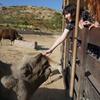 Ellie Warren
Ellie Warren
3 March 2020 12:00am
Hawai'i Conservation Conference
 Hawaiʻi Conservation Alliance
Hawaiʻi Conservation Alliance
28 February 2020 12:00am
Competition: The Artisanal Mining Grand Challenge
26 February 2020 12:00am
Listening to Nature: The Emerging Field of Bioacoustics
24 February 2020 12:00am
Team for Building of ML app for horse identification and conservation
20 February 2020 11:09pm
HWC Tech Challenge Update: Thermal Elephant Alert System
17 February 2020 12:00am
ICEI2020: 11th International Conference on Ecological Informatics
 ICEI 2020
ICEI 2020
14 February 2020 12:00am
Seafood fund seeks ideas for innovation projects up to £250k
11 February 2020 12:00am
WILDLABS Virtual Meetup Recording: Acoustic Monitoring
5 February 2020 12:00am
AI for camera trap public data
17 December 2019 9:20pm
A New Cloud Platform Unveils the Most Diverse Camera Trap Database in the World
17 December 2019 12:00am
[ARCHIVED] Workshop on Deep Learning Methods and Appliocations for Animal Re-Identification
25 November 2019 6:24pm
WACV2020 AI for Animal Re-ID: Deep Learning Methods and Applications for Animal Re-Identification
25 November 2019 12:00am
WILDLABS Virtual Meetup Recording: Drones
9 November 2019 12:00am
Camera Trapping: Incredibly Useful Resources List
5 November 2019 12:00am
Who wants to learn Python? Courses to get you started coding
2 May 2016 3:13pm
1 March 2019 9:20am
Hello everyone what are you wating for..
All US, UK, India users can enroll courses from Intellipaat (the largest IT trainng company)
check some of thier superb training list:
29 October 2019 4:52pm
Chuck's Python for Everyone course is available these days at www.py4e.com, and he's also created a course called Web Apps for Everyone www.wa4e.com. Both excellent resources, and he's a strong proponent for (and creator of) open source educational tools in general.
Lucy
Plant-Powered Camera Trap Breakthrough
15 October 2019 12:00am
Using Artificial Intelligence to Track Birds’ Dark-of-Night Migrations
9 October 2019 12:00am
Camera Trap Technology Symposium (Recordings): Bringing Developers and Users Together
2 September 2019 12:00am
ICCB 2019: 5 Key Discussions about the Future of Conservation Tech
21 August 2019 12:00am
Conservation biologists find new applications for AI tools
5 August 2019 2:57pm
Automated Identification of Indonesian Rhinos
27 July 2019 12:00am
[ARCHIVED] Position: UI/UX Machine Learning Engineer
8 July 2019 11:27pm
[ARCHIVED] Position: Senior Computer Vision Research Engineer
8 July 2019 10:42pm
Hello buzzing World!
7 July 2019 6:55pm
ML at the Edge
28 June 2019 8:16am








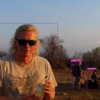



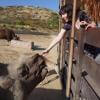































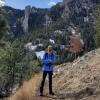







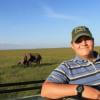




31 August 2017 9:06am
A couple of years ago I completed the Coursera course Programming for Everybody (Getting Started with Python) with Charles Severance. I found it really well paced and well taught. He's a very personable tutor, and has also written a free book Python for Everybody, available as a PDF.
I found the Coursera course on R Programming with Roger Peng to be more difficult to follow, but I'm not sure whether that was down to the teaching style or the language itself. For R, I'd definitely recommend the best place to get started is swirl - Learn R, in R!
Happy coding